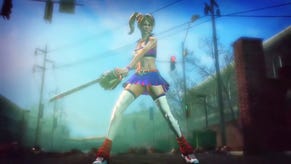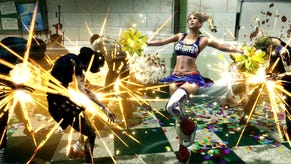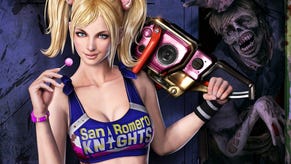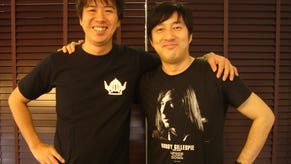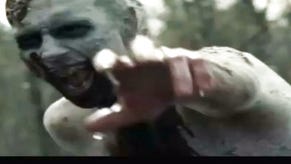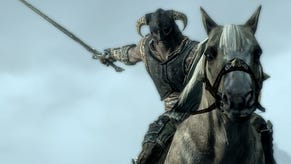Saturday Soapbox: In Defence of Lollipop Chainsaw
Girl power.
The word misogyny has crept its way into the gaming vernacular recently, thrown about accusingly and often - if you ask me - incorrectly at any game that dares to show a female in any light other than stoic and masculine. Beyond the Tomb Raider fiasco (which to me seems a non-debate until the actual game is released), the most common target for the ire of the misogynista is Grasshopper's Lollipop Chainsaw.
It's not difficult to see why. Pretty girl, cheerleader outfit, perilously short skirt. At a glance it's just another in a long line of cynical action games, ready to fade into insignificance alongside Onechanbara and X-Blades.
But Lollipop Chainsaw isn't misogynist. It isn't even sexist. At a completely base level it might be titillating, puerile and even a bit crass, but as with everything Suda 51 puts his name to, there's so much more going on.
The opening scenes depicting Juliet Starling in her bedroom sucking on a lollipop are suggestive, sure, and there's a touch of uncomfortable upskirt (and one scene where her pervy old sensei falls face first into her breasts) but is this really anything more than Carry On humour?
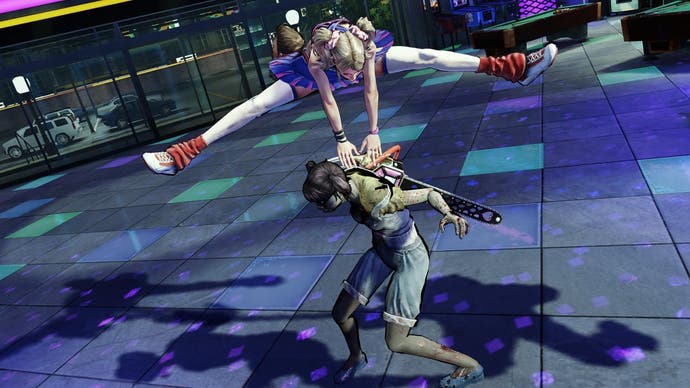
Of course, it's the rather delightful subtext pulsating through Lollipop Chainsaw that casts any notion of misogyny or sexism over the rainbow and into the distant yonder entirely. Juliet is fleshed out and oddly believable - not just the one-dimensional wank fantasy that many have casually dismissed her as - and played with spark and verve by Tara Strong.
She has hopes and dreams, she's driven by her own desire to succeed and to make her father proud, she's powered by relentless positivity but tinged with self-doubt. She takes everything in her stride but worries about her weight. She completely ignores the grimy advances of the high school students she rescues ("I'm totally gonna masturbate to you tonight").
Given Lollipop Chainsaw's overt connection with horror cinema - particularly the schlock and grindhouse of the late 70s - the volume of bare and barely legal flesh shouldn't come as a huge surprise. Exploitation cinema has over time been allowed a certain amount of respect - could this just be an example of exploitation gaming?
Arguably it is more than that. Horror notoriously enjoys subverting gender roles and placing strong female heroines at the fore - Alien's Ripley, Halloween's Laurie Strode and through to Planet Terror's Cherry Darling. It just so happens that Suda, and James Gunn in particular, choose the type of subversion born in the grindhouse and through Gunn's own work for Troma early in his career. Perhaps this is the Tromeo And Juliet sequel he'd always dreamed of.
There's quality and warmth in the writing too, and it's not all just boobs and brutality. Juliet's relationship with disembodied head and boyfriend Nick is both the best thing about Lollipop Chainsaw and one of its most thought-provoking points. Gunn has likened the game to a cross between Dawn Of The Dead and The Powerpuff Girls, and the candy-coated madness on screen can occasionally mask what is, essentially, a story of romance and young love. It just happens to also be one with a zombie-hunting cheerleader who is falling in love with a decapitated head.
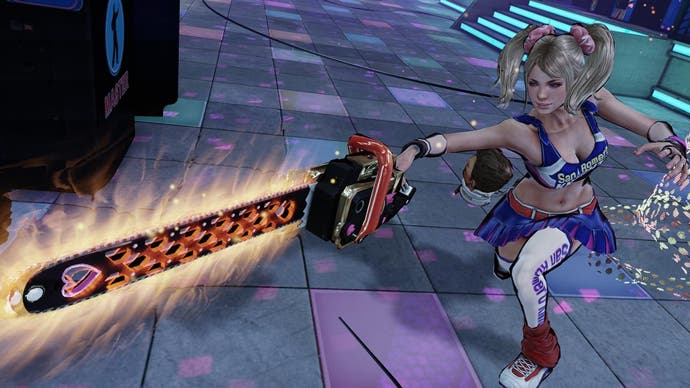
The interplay between Starling and Nick is splendid throughout. The way Michael Rosenbaum's Nick reacts to Juliet's ever-increasingly insane ideas is hilarious. It reminds me of the nascent parts of a relationship where a doting male will go along with whatever his new love wants, not out of duty or reluctance, but just because he wants to be with her.
If anything, Lollipop Chainsaw isn't an exercise in objectification, it's one in objectification flipped. Jim Sterling observed that Nick's role is not only an emasculated male (he's not only incapable of battling the zombies himself - he's incapable of doing anything), but literally as an object that Juliet has hanging from her belt like an accessory. She can use him, against his will, in gameplay, or stick him on an otherwise-headless corpse to carry out her every pom pom-led whim. Gunn's admitted that he revelled in the idea of toying with the ideas of gender objectification, and his involvement helped mould another madcap Suda project into something more relatable and, bizarrely, conventional.

Beyond that, it's fairly easy to see how almost every other male (barring the Starlings' magnificent father) in the game is completely cerebrally and emotionally redundant. In a trait running through a lot of SUDA's work, the male is deconstructed, parodied even.
The nihilistic punk who spits defamatory, physical insults at Juliet isn't the construct of a sexist. It's the output of writers and directors with an eye for creative flair. Its intentions are far from subtly played - words are the only thing that could possibly hurt Juliet, and even those are weak and easily ignored.
In fact, if anything in Lollipop Chainsaw could be deemed sexist, it would be Juliet's brief portrayal as a woman who cares more about the ideal of Nick as a boyfriend then the reality (summed up by the highly amusing 'make over' scene). A woman concerned more with appearance and perception. But even that's hardly the case given the extraordinary heart and warmth she shows throughout. If anything, that's just a character flaw - something female characters are just as entitled to as male. And as with everything in the game, it's just played for laughs.
It's not perfect, though. At times, Lollipop Chainsaw doesn't do a great job at displaying its good intentions - the opening scenes, 'upskirt' achievement and some questionable promotion don't really help its cause when you're trying to argue its intellectual merits. Should the game's creators also be responsible for how it's marketed? Another argument, perhaps, but it's a tough sell to ask detractors to differentiate the two.
Ultimately, though, the most important thing to remember is that Lollipop Chainsaw is a fantastically dumb video game, and I mean that as a compliment. It's a game about a cheerleader killing zombies with a chainsaw while rainbows burst out of their decaying corpses; comedically potent and taking itself about as seriously as Toni Basil when she wrote Hey Mickey. It's glorious, stupid fun.
There's sexism in video games. Of course there is. There's bad writing and bad characterisation and misguided ideas and just downright nasty games. Lollipop Chainsaw is none of these things. It's not the Jim Davidson of videogames and nor is it the glowing bastion of female empowerment. It's just a disposable, memorable, clever, dumb piece of wonderful nonsense in the finest Suda tradition. And who better to sum it up than Gunn himself.
"I never claimed that Lollipop Chainsaw progressed anything in any way, much less gender roles. I only wanted to create a fun and funny game. I only want to tell stories that make people laugh, or move them for a little while and make them feel less alone."
And I think we can all relate to that.


